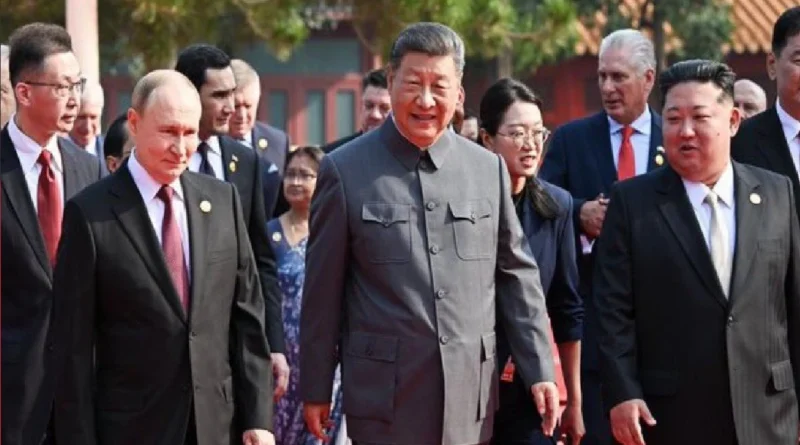Xi Jinping Oversees Massive Military Parade, Warns World Must Choose Between War and Peace
Chinese President Xi Jinping oversaw a grand military parade in central Beijing, delivering a stern warning that the world today faces a choice between war or peace. The event marked the 80th anniversary of Japan’s defeat in World War II, with thousands of Chinese troops and cutting-edge weapons on display.
For Xi, the occasion was rich in symbolism, reflecting his ambition to more openly redefine the post-war, U.S.-led global order. Speaking before the parade, Xi recalled moments in history when humanity faced serious conflicts between good and evil, light and darkness, progress and regression.
“In the past, when faced with serious struggles between good and evil, between light and darkness, between progress and reaction, the Chinese people stood united to challenge the enemy,” Xi said.
“They fought for the survival of the nation, for the rejuvenation of the Chinese nation, and for justice for all humanity. Today, humanity must again choose—between peace or war, dialogue or confrontation, win-win cooperation or zero-sum rivalry.”
First-Time Gathering of U.S. Rivals: Xi, Putin, and Kim Jong-un
In a display of unity among authoritarian regimes, this was the first time that Xi Jinping, Vladimir Putin, and Kim Jong-un appeared together at a public event. The gathering signaled China’s growing diplomatic clout, especially among nuclear-armed neighbors that share a contentious relationship with the United States.
According to Wen-Ti Sung, a fellow at the Atlantic Council’s Global China Hub based in Taiwan:
“Beijing is sending a message of defiance… that China is not afraid to stand by its friends, to be a genuine partner—even, and perhaps especially, when they are isolated in the court of global opinion.”
A Carefully Choreographed Display of Power
This was the first military parade of its kind since 2015, and one carefully orchestrated to project strength and control. Xi wore a suit similar to that of former Chinese leader Mao Zedong and reviewed troops from an open Hongqi luxury sedan, evoking historical echoes of Communist rule.
Dozens of high-tech weapons systems were paraded, some being publicly unveiled for the first time. The event included the participation of 26 foreign leaders, including heads of state from Russia, North Korea, Pakistan, Nepal, the Maldives, and others—highlighting Beijing’s growing influence in the Global South and the autocratic world.
Absence of the West and Diplomatic Tensions with Japan
In contrast, leaders from the United States, South Korea, and the European Union chose not to attend the parade. This absence aligned with Japan’s diplomatic appeal urging global leaders to skip the event, which added further strain to already tense China-Japan relations.
The spectacle served not only as a moment of national pride for China but also as a geopolitical statement—positioning Beijing as a challenger to Western dominance and a guardian of an alternative global order.
Stay updated with International News in Hindi on Prabhasakshi

